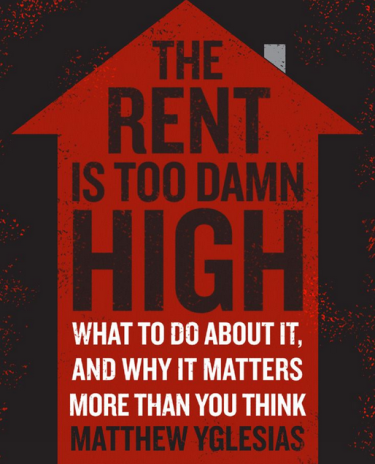Leading liberal policy wonk: “Snob zoning” drives inequality
 The fact that California has by far the nation’s highest effective poverty rate finally sank in with the California political and media establishments in recent months. The Census Bureau’s 2012 decision to issue a separate ranking that factored in the cost of living moved California from the middle of the pack nationally to the top.
The fact that California has by far the nation’s highest effective poverty rate finally sank in with the California political and media establishments in recent months. The Census Bureau’s 2012 decision to issue a separate ranking that factored in the cost of living moved California from the middle of the pack nationally to the top.
So far, this has led many state politicians to call for doubling down on conventional means of providing affordable housing: using government subsidies to build homes for a relative handful of residents. New York Mayor Bill de Blasio, however, believes the biggest impediment to affordable housing is the lack of new housing stock. He backs a plan to repeal regulations and allow 160,000 new dwellings to be built in his city.
Now there’s another prominent East Coast liberal weighing in with a similar view: Vox’s Matthew Yglesias, among the most influential policy wonks in liberal circles. Yglesias’ comments come in a discussion of Thomas Piketty’s ballyhooed book “Capital in the 21st Century” and the criticisms of it by MIT graduate student Matt Rognlie, which centered on Piketty not grasping the relevance of extreme housing costs to income inequality. Yglesias’ key point:
Yet if labor’s falling share of national income is entirely accounted for by the increased returns to housing capital, then it seems we should be looking at housing-specific trends to explain the problem. Rather than robots [taking away jobs], the problem is almost certainly snob zoning rules that prevent the construction of new affordable housing in expensive areas.
Rognlie cites work by economists Ed Glaeser, Joseph Ryorko, and Raven Saks to argue that exclusionary zoning practices have contributed greatly to lack of housing affordability and that this should be more central to the wealth inequality debate. Lawrence Summers, likewise, argued in a review of Capital that “an easing of land-use restrictions that cause the real estate of the rich in major metropolitan areas to keep rising in value” should be an important element of the policy agenda to address Piketty’s concerns.
East Coast vs. West Coast policy gap on housing as well as schools?
It is nothing new for Yglesias to make the point that more housing stock is badly needed. He’s been doing it for years, most notably in his book, “The Rent is Too Damn High.” But what’s interesting is how in this case he explicitly links income inequality to the modern regulatory state.
By contrast, many California Democrats argue that the impact and cost of regulations is exaggerated, starting with leading environmentalists.
 When it comes to housing policy, we could see stark regional differences that amount to a replay of the education reform debate. East Coast liberals have been far more receptive to school reforms like teacher competency testing and use of metrics in measuring student and teacher performance than West Coast liberals. Massachusetts arguably has the best-run public education system in the nation, and its landmark education reform measure was adopted in 1993.
When it comes to housing policy, we could see stark regional differences that amount to a replay of the education reform debate. East Coast liberals have been far more receptive to school reforms like teacher competency testing and use of metrics in measuring student and teacher performance than West Coast liberals. Massachusetts arguably has the best-run public education system in the nation, and its landmark education reform measure was adopted in 1993.
There’s also a long history of East Coasters understanding that union interests are not aligned with student interests. In Woody Allen’s 1973 movie “Sleeper,” about a New Yorker in suspended animation who wakes up 200 years in the future, the lead character learns that America was destroyed when “a madman named Albert Shanker got hold of a nuclear weapon.”
The joke was aimed at New Yorkers, many of whom loathed a teachers union leader named Albert Shanker who led a 55-day citywide teachers’ strike in 1968. This New York Times obit of Shanker reflects on the strike’s rancor and mentions the “Sleeper” reference.
The prime cause of the strike was Shanker’s objection to a pilot program in which local communities were allowed to take over three struggling schools in minority neighborhoods. Nearly a half-century later, similar issues are at play in the Vergara case involving Los Angeles schools. The lawsuit centers on the plaintiffs’ claim that union-backed state laws protect teachers and hurt struggling minority students.
Chris Reed
Chris Reed is a regular contributor to Cal Watchdog. Reed is an editorial writer for U-T San Diego. Before joining the U-T in July 2005, he was the opinion-page columns editor and wrote the featured weekly Unspin column for The Orange County Register. Reed was on the national board of the Association of Opinion Page Editors from 2003-2005. From 2000 to 2005, Reed made more than 100 appearances as a featured news analyst on Los Angeles-area National Public Radio affiliate KPCC-FM. From 1990 to 1998, Reed was an editor, metro columnist and film critic at the Inland Valley Daily Bulletin in Ontario. Reed has a political science degree from the University of Hawaii (Hilo campus), where he edited the student newspaper, the Vulcan News, his senior year. He is on Twitter: @chrisreed99.
Related Articles
I Can't Afford a Tax Increase
John Seiler: I usually make coffee at home. But this morning, I got a Starbucks. Fishing around in my wallet
Dr. Lopez Misdiagnoses Unions
John Seiler: In his Sunday column, L.A. Times columnist Steve Lopez praises unions — but doesn’t distinguish between private and
Study of Los Angeles: Prosperity increases income inequality
Coverage of income inequality is shockingly slanted and inept. Lazy, populist demonization of the 1 percent is the standard default



